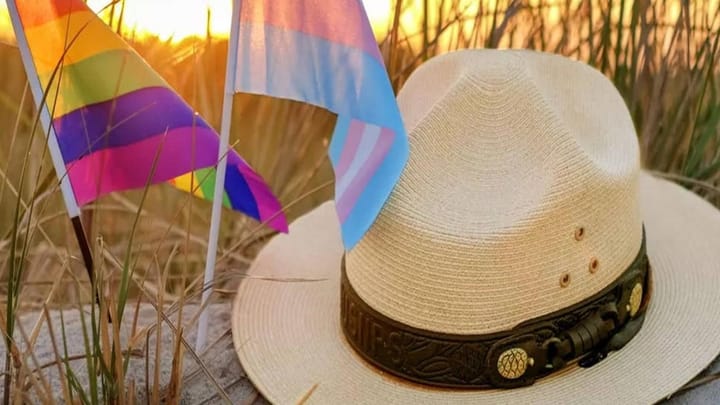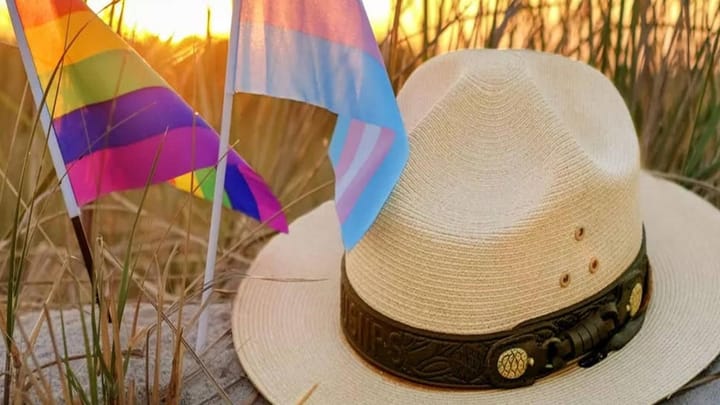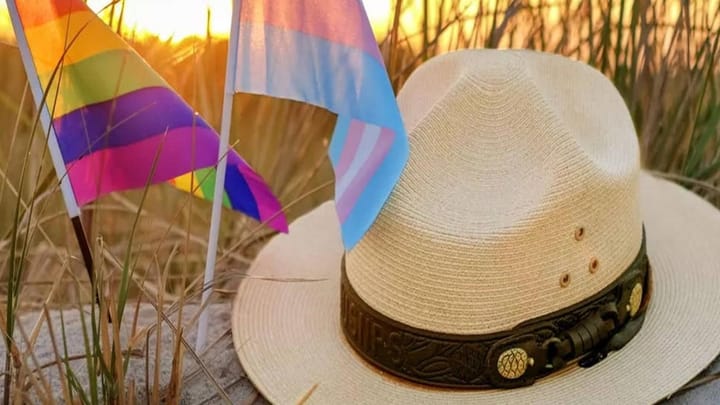Ranger-led activity: Read a banned book
Take some time to explore "dangerous" words.

This Ranger-led activity is called "Read a banned book". Each activity we post will contain a resilience exercise, a reflection, and an action opportunity. You are welcome to do any of the parts of the activity that resonate with you.
Resilience exercise
Get those library cards ready! For this week's resilience exercise, we want you to read a banned book. How you read or acquire the book is totally up to you. You can get the audiobook version. You can read or listen to the free chapter preview on Amazon. You can skim a copy of the book at your library or a bookstore. We know you're busy and money is tight, so you don't even have to finish the book if you don't want to. Because in a world where fascist behaviors are being normalized far too easily, even reading just one page of a banned book is a victory.
As Pen America reports, book bans have surged. In the 2023-2024 school year, over 10,000 book bans were attempted. Many of the books that were targeted for bans included LGBTQ+ themes, depictions of sex, the perspectives of racial minorities, and books that confront the realities of violence. If you want a list of books to choose from, Pen America has a list of the most banned books in 2025. They also collected a list of books the National Park Service purged from the Stonewall National Monument website. Scroll through all their banned book posts, and we guarantee you'll find a story that appeals to you.
Reflection
Americans are not reading as much as they used to. Pew Research Center found that "roughly a quarter of American adults (23%) say they haven’t read a book in whole or in part in the past year." Part of the reason for this shift is that people are reading differently through audiobooks or on smartphones. Pew also found trends according to education and income levels as well, which suggests that the cost of reading materials might be a factor too.
Read the results of their survey or listen to this story on the topic from NPR. Think about how this trend is affecting our media landscape as well as how we all relate to others as human beings. Is this something to be concerned about? Or is this simply another evolution in media? Think about how this will affect education and imagine what the future will bring in a world where most people scroll to read.
Action Opportunity
Visit your local public library in person or online. If you have never been before, this is a great chance to see what resources your library has and find out how to get a library card.
If you really don't have a good local library or transportation is hard for you to arrange, poke around the website for one of your state universities or check out the Library of Congress or the National Archives. These public resources have a lot of records available online and it's worth exploring all the things you can access for free right from your computer or phone.
Bonus action opportunity: Healthy libraries are key to a healthy democracy, so ask a librarian how you can advocate for them with your local government. Talk to them about what they need, then go call or email your representative to tell them you support your local library getting the resources it needs to thrive.


